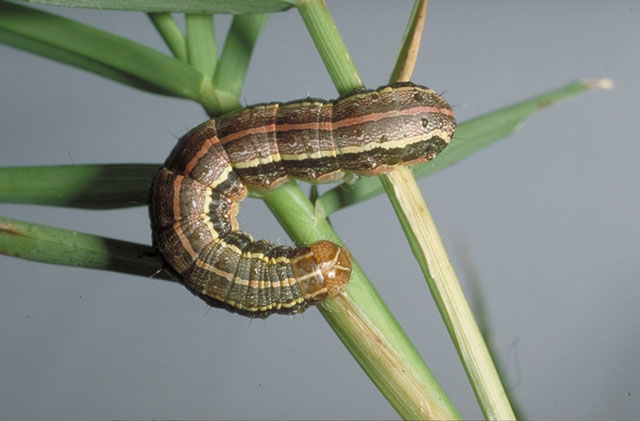
The Sunday News

Dumisani Nsingo, Senior Farming Reporter
A GOVERNMENT research institution, Plant Protection Research Institute, has identified and recommended 10 pesticides for the eradication of fall armyworm which threatened to hamper the country’s 2016/17 summer season maize crop yield.
Plant Protection Research Institute acting head Mr Shingirayi Nyamutukwa said the 10 pests killing chemicals produced by various manufacturers were already on the market. The pesticides were part of the numerous chemicals that were given temporary registration after a fall army worm outbreak throughout the country last season.
“We conducted trials just to make sure and verify which levels or concentrations of chemicals should be applied by farmers. In actual fact, we are looking at the correct rates. This is what we have been doing because when there were outbreaks and farmers were crying out that the pest was causing a lot of damage, there was need to provisionally register some chemicals for use while trials were being conducted. What we are saying right now is that we have done trials on 10 chemicals and very soon we will be availing these to farmers once our procedures have been concluded within the Research Services Division,” said Mr Nyamutukwa.
Zimbabwe’s response to the outbreak of the fall armyworm was hampered by farmers’ lack of information and pesticides to fight it. This threatened to worsen the food insecurity situation as it targeted the staple crop-maize.
“The fall armyworm was reported in all provinces and it was quite devastating. We had challenges here and there especially with respect to accessing different crop damage and yield losses as it was a heavy rain season,” said Mr Nyamutukwa.
He however, commended the Government for expediting its intervention strategies which avoided a catastrophe.
“While we incurred some losses, I would like to commend the efforts we had to put in place through Government where we had to undertake several training programmes in all provinces to ensure that messages were received timeously for farmers to scout early their crops even at vegetative and productive stages and that actually helped in averting a lot of losses that we were going to incur had that intervention not been implemented.
“I must say that with the correct management we called on farmers to employ as well as scouting (of pests). We managed to avert a lot of losses that were going to incurred. We are not talking of much losses because once you control the pest the crop actually quickly recovers . . . so with that recovery the crop will reproduce and give a very good cob,” said Mr Nyamutukwa.
Fall armyworm can be one of the more difficult insect pests to control in field corn. Late planted fields and late maturing hybrids are more likely to become infested. Fall armyworm causes serious leaf feeding damage as well as direct injury to the ear. While fall armyworms can damage corn plants in nearly all stages of development, it will concentrate on later plantings that have not yet skilled.
Mr Nyamutukwa said trials were underway to come up with pesticides to eradicate another pest, the tomato leaf miner or tuta absoluta that caused havoc to the tomato crop in various parts of the country the previous season.
“We were also doing trials on which chemicals should be used for management of tuta absoluta. So we are going to finish our trials soon and we will follow the same procedures we have done with chemicals for the management of fall armyworm then we should be providing recommendations soon for farmers to use the chemicals that we are conducting trials on and I am sure a solution is going to be available to farmers soon,” he said.
Mr Nyamutukwa said the outbreak of tomato leaf miner was very devastative and greatly affected most horticultural producers’ enterprises.
“In terms of tomatoes, the tomato leaf miner was quite devastating. I will give an example of farmers who in a small plot had harvested about 400 crates of tomatoes, selling each crate at $20 and got about $8 000 and managed to buy a truck and so forth but in the following crop they didn’t realise even half that number of crates and in terms of price there was a price drop of $7 from $20 to $13.
“So you can imagine the loss in terms of fruit quality and what it means in terms of loss price per crate. So I must say tomato leaf miner was quite devastating and farmers really cried foul but very soon, like I indicated, we should be having a solution that we will be providing the farmers for use in controlling the pest,” he said. -@DNsingo



